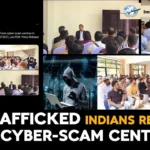Applying for a study abroad program is an exciting but challenging process. While it opens doors to new academic and personal experiences, the application process can be overwhelming for many students. According to recent statistics, over 13.35 lakh Indian students will be studying abroad in 2024, and this number continues to grow, reflecting a rising interest in international education. However, even the most capable students can fall prey to common mistakes during the application process. To help guide you, experts share their insights on the top mistakes to avoid when applying for study abroad programs.
Top Mistakes to Avoid When Applying for Study Abroad Programs: Counselors Share Their Insights
1. Choosing Reputation Over the Right Fit
It’s tempting to select universities based solely on their rankings or reputation, but this can lead to choosing a program that doesn’t align with your academic goals or personal needs. For instance, while prestigious universities may offer excellent resources, they might not have the specific research opportunities you’re looking for in a specialized field.
Tip: Focus on finding universities that match your academic goals, interests, and preferred learning environment rather than just selecting based on rankings.
| Key Factor | Why It’s Important |
|---|---|
| University Reputation | May not align with your academic goals |
| Specialization | Ensure the program offers the specific research areas you need |
| Personal Fit | Look for a social and cultural fit for a better experience |
2. Overlooking the Costs
A major mistake students make is underestimating the costs of studying abroad. While tuition is the biggest expense, students often overlook other financial aspects such as accommodation, travel, insurance, food, and living expenses.
Tip: Create a detailed budget to account for all expenses, including scholarships and part-time job opportunities. This proactive approach ensures you don’t face financial challenges later.
| Expense Category | Estimated Cost |
|---|---|
| Tuition Fees | Varies by institution and program |
| Accommodation | Rent, utilities, and maintenance |
| Food and Living Expenses | Groceries, transportation, leisure activities |
3. Sending Incomplete Applications
A rushed or incomplete application can hinder your chances of getting accepted into your desired program. Missing documents, incomplete personal statements, or failing to follow application guidelines are common errors that can make admissions teams question your dedication.
Tip: Double-check all application requirements, and tailor your statement to highlight your unique experiences and suitability for the program.
4. Delaying Visa and Immigration Work
Many students delay the visa application process, assuming it will be quick and easy. However, visa applications can take time, especially when documentation is incomplete or there are interviews to attend.
Tip: Start the visa process immediately after receiving your admission letter. Stay updated with the requirements for the country you’re going to and ensure all documents are submitted well in advance.
5. Overlooking Language Proficiency Requirements
Language proficiency tests like IELTS, TOEFL, and PTE are essential for many study abroad programs. Delaying or inadequately preparing for these tests can result in poor scores, which could significantly affect your chances of admission.
Tip: Schedule your language proficiency tests early and practice regularly to ensure your scores meet the program’s requirements.
| Proficiency Test | Common Mistakes | Preparation Tip |
|---|---|---|
| IELTS | Procrastination, lack of practice | Take mock tests, enroll in preparatory courses |
| TOEFL | Limited test preparation | Study regularly, review sample questions |
6. Not Researching the Cultural Transition
Studying abroad isn’t just about academics; it’s also about adapting to a new culture and environment. Failing to research cultural differences can lead to culture shock and feelings of isolation.
Tip: Research your host country’s culture, traditions, and social norms. Apps like Duolingo for language and Citymapper for transportation can help you adapt quickly to your new surroundings.
7. Not Asking for Help
It’s easy to think you can handle everything on your own, but applying for study abroad programs can be complicated. Not seeking professional guidance can result in avoidable mistakes.
Tip: Consult with study abroad consultants, such as ReachIvy.com, who can provide expert advice and help you craft a strong application. Their support can save you time and effort while increasing your chances of success.
| Type of Help | Benefit |
|---|---|
| Consultants | Personalized guidance to navigate the process |
| Counselors | Help with research, applications, and visa advice |
Final Thoughts: Your Path to Studying Abroad
Applying for a study abroad program is an exciting but detailed process that requires careful planning and consideration. Avoiding these common mistakes can significantly improve your chances of acceptance and ensure that your time abroad is both academically and personally enriching.
With the right approach, support from study abroad counselors, and proper preparation, you can maximize the opportunities available to you. By keeping these tips in mind, you’ll be on the right path to a successful international education experience.
For expert help throughout your study abroad journey, platforms like ReachIvy.com provide valuable resources and advice, ensuring your application stands out and is completed successfully.



